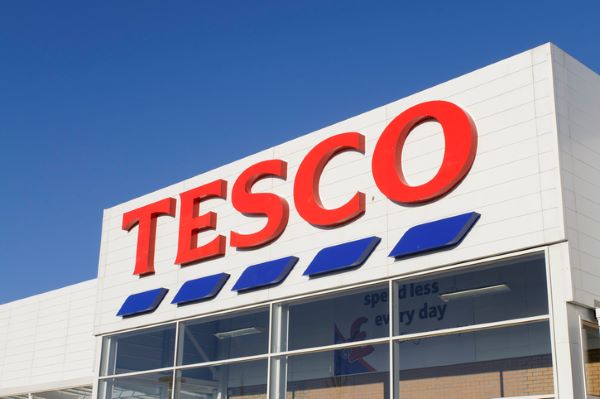ii view: Tesco – an investment staple?
Shares in this retail leader are up 62% over the last five years, with food a must for consumers no matter what the economic backdrop. Buy, sell, or hold?
16th October 2025 15:39
by Keith Bowman from interactive investor

First-half results to 23 August
- Revenue up 3.6% to £36 billion
- UK like-for-like (LFL) sales up 4.9%
- Adjusted operating profit up 1.6% to £1.67 billion
- Interim dividend up 12.9% to 4.8p per share
- Net debt up 4.5% since late February to £9.88 billion
Guidance:
- Now expects full-year adjusted operating profit of between £2.9 billion and £3.1 billion, up from a previous £2.7-3 billion estimate – and potentially matching last year's £3.13 billion
Chief Executive Ken Murphy said:
"I am pleased with our first half performance, which builds on already strong momentum. Our market share gains in the UK are a particular highlight and reflect the decisive action we took at the start of the year to further invest in value, quality and service.
“The extension of our savings programme is helping offset new operating cost inflation, including increased National Insurance and other regulatory costs. Sales have grown across all our businesses, with customer satisfaction scores improving once again.”
- Our Services: SIPP Account | Stocks & Shares ISA | See all Investment Accounts
ii round-up:
The retailer’s first own-branded product was Tea. The name Tesco (LSE:TSCO) comes from the initials of TE Stockwell, a partner in the firm of tea suppliers, and CO from founder Jack Cohen’s surname.
Today, Tesco operates over 5,000 stores across the UK, Ireland, Czech Republic, Slovakia and Hungary. Most run under the Tesco brand, although with others, and including outlets run by franchised businesses, operating under the ‘Booker’ and ‘One Stop’ brands.
For a round-up of the retailer’s latest results announced on 2 October, please click here.
ii view:
Tesco is the largest retailer listed on the UK stock market with a value of just over £28.5 billion. Rivals include Marks & Spencer Group (LSE:MKS), valued at close to £8 billion, Sainsbury (J) (LSE:SBRY) at about £7.5 billion and Ocado Group (LSE:OCDO) at just under £2 billion. Management focuses include providing value to customers, creating a competitive advantage via data collected by its Clubcard and cutting costs to then re-invest back into the business.
For investors, previously increased UK staff related taxes and potential for further tax rises at the Autumn Budget offer caution. Competitors, such as the now private equity owned Asda, are not standing still. Asda recently announced price cuts, raising fears of another sector price war. A forecast price/earnings (PE) ratio above the three-year average may suggest the shares are not obviously cheap, while wholesaling business Booker, acquired in 2017, continues to prove susceptible to falling tobacco sales.
- Stockwatch: is recent bolt of panic a warning sign?
- The Income Investor: an alternative for those mulling shift to cash
- ii view: Kingfisher chasing efficiency gains
- Three dominant themes among top funds
To the upside, 28 consecutive four-week periods of growth in UK market share now leave the metric standing at 28.4%. UK online sales rose 11.4% during this latest period, with sales at relatively new fast delivery service Whoosh up 59%. A diversity of geographical locations contrasts with the UK only focused Sainsbury's, while a focus on shareholder returns includes share buybacks of £3.7 billion since October 2021 and a forecast dividend yield of 3.2%.
In all, and despite ongoing risks, this dominant yet still growing UK food retailer remains firmly deserving of its place in most long-term focused investor portfolios.
Positives
- Robust UK market share
- Ongoing growth in online sales
Negatives
- Intense industry competition
- Uncertain economic outlook
The average rating of stock market analysts:
Buy
These articles are provided for information purposes only. Occasionally, an opinion about whether to buy or sell a specific investment may be provided by third parties. The content is not intended to be a personal recommendation to buy or sell any financial instrument or product, or to adopt any investment strategy as it is not provided based on an assessment of your investing knowledge and experience, your financial situation or your investment objectives. The value of your investments, and the income derived from them, may go down as well as up. You may not get back all the money that you invest. The investments referred to in this article may not be suitable for all investors, and if in doubt, an investor should seek advice from a qualified investment adviser.
Full performance can be found on the company or index summary page on the interactive investor website. Simply click on the company's or index name highlighted in the article.